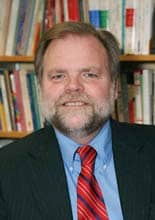Lent is a time of reflection in which spiritual leaders make a commitment to walk the paths of Jesus, celebrating our gifts and facing our temptations. As Matthew 4:1-11 suggests, when Jesus took his retreat in the wilderness, he discovered the close relationship between his calling and the power that came with it and the otherwise good things—sustenance, sovereignty, and security—that would take him off course and dilute his calling.
Now, of course, we pastors can't go away for the forty days of Lent! In fact, this is one of the times when people want us most—to lead worship, to do a special Bible study, to make pastoral calls, and to nurture congregational spirituality. In the wilderness of our vocations, in which success is seldom guaranteed and loss of membership and financial stress the norm in many congregations, our spiritual calling is to experience holiness amid the busyness.
As Paul asserted in Philippians 2:12-13, grace and intentionality are woven together intricately in our spiritual journeys. All good gifts come from God, but we must seriously and consciously awaken to the grace that moves through our lives. One of my spiritual teachers, Gerald May, described a process involving the following steps: pause, notice, open, stretch and yield, and respond. I have elaborated on this process in Tending to the Holy: The Practice of the Presence of God in Ministry (written with Kate Epperly).
In the midst of the busyness of ministry, when life comes at us fast, this process can ground your spirituality in the holy moments of your day and deepen your attentiveness to God's presence in the routine and special tasks of ministry.
- Pause. Take a moment to stop what you're doing, breathe deeply, and listen. I typically pause between activities—moving from writing a sermon or book to picking up the phone or checking my e-mail. I pause a moment before beginning a meeting, making a pastoral call, or visiting a patient in the hospital.
- Notice. Reflect on your current experience and spiritual condition. Are you stressed out? Anxious? Calm? Weary? Hopeful? Many of us go through the day not noticing our spiritual condition because certain states such as stress and fatigue have become normal.
- Open. Experience this moment without judgment. We can be nowhere else than this present moment. In opening to the moment, we open to new possibilities.
- Stretch and Yield. Allow yourself to grow in relationship to the moment. Let the feelings and possibilities emerge and yield to any divine inclinations you experience, leaning not to your own limited understanding but God's larger vision for the moment and your life.
- Respond. Here openness and radical acceptance meet intentionality. In this moment and this day, what am I called to be doing? Where is God leading me? What intuitions am I receiving to enable me to be more faithful to God and my calling?
Yes, pastors are busy—most busy, ironically, during the seasons of reflection. Taking a moment several times a day to pause and awaken to God's vision for your life may ease the stress and bring greater calm, insight, and energy for our mission as God's partners in healing the world.
3/11/2011 5:00:00 AM





